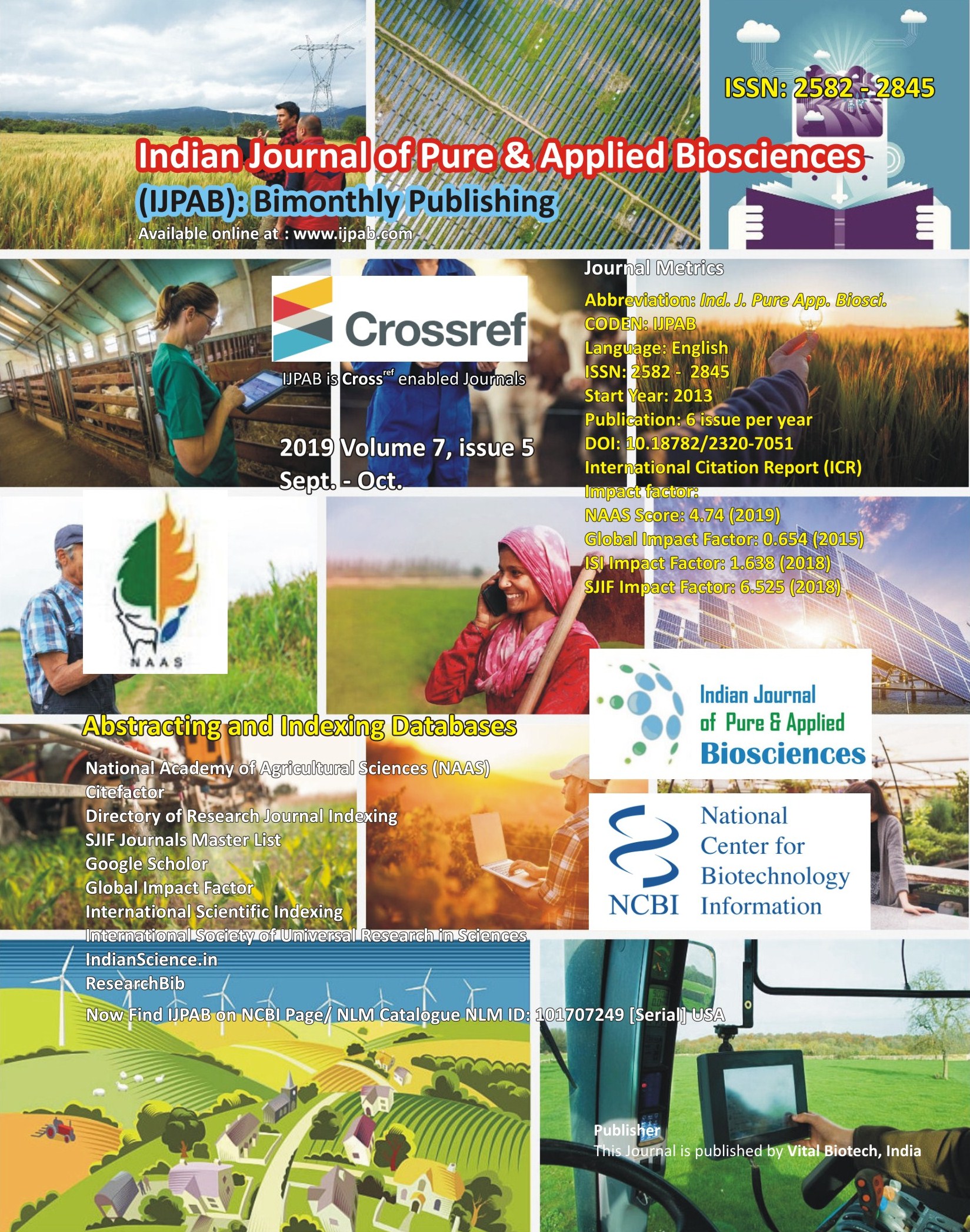
-
No. 772, Basant Vihar, Kota
Rajasthan-324009 India
-
Call Us On
+91 9784677044
-
Mail Us @
editor@ijpab.com
Indian Journal of Pure & Applied Biosciences (IJPAB)
Year : 2019, Volume : 7, Issue : 5
First page : (413) Last page : (421)
Article doi: : http://dx.doi.org/10.18782/2320-7051.6891
Health Promoting Bioactive Phytochemicals Present in Organically and Conventionally Grown Exotic Brassica Vegetables
Preeti Chaudhary*, Ranjana Verma and Radhana Gupta
Department of Food Science, Nutrition and Technology CSK Himachal Pradesh Agricultural University, Palampur- 176062 (India)
*Preeti Chaudhary Village Nouri PO Padiarkhar, Baijnath District Kangra HP. 176081
*Corresponding Author E-mail: preetichoudhary0070@gmail.com
Received: 18.09.2018 | Revised: 27.10.2018 | Accepted: 13.11.2018
ABSTRACT
The beneficial effects of Brassica vegetables on health improvement have been partly attributed to the presence of various forms of phytochemicals and antioxidants present in it, e.g. ascorbic acid, carotenoids and polyphenol compounds including flavonoids and chlorophyll. Two Brassica vegetables viz. broccoli (Brassica oleracea) and kale (Brassica oleraceae l.var acephala) which, grown organically and conventionally were analysed for their phytochemicals content. The ascorbic acid content of organically grown broccoli and kale was 89.67±0.33 and 48.67±0.33 mg/100g which was comparatively higher when compared with inorganic counterparts with 84.80±0.40 and 43.33±0.67 mg/100g values respectively. The beta carotene content was found to be higher in case of organic broccoli i.e. 11.17±0.01 ppm as compared to 8.71±0.01 ppm in inorganic broccoli. The chlorophyll content was higher in case of inorganic broccoli (5.87±0.03 mg/L) and kale (8.31±0.01 mg/L). Simple phenol and flavanoids were found to be higher in case of organic kale as compared to inorganic kale. Total phenols, tannins and oxalates were found to be higher in inorganic broccoli and kale. Both broccoli and kale were good sources of pytochemicals. From the findings of the study concluded that they are rich in health–promoting phytochemicals so should be included in our food basket to provide protection against various diseases especially cancer. The cultivation and consumption of broccoli and kale should be promoted to harness their health promoting and health protecting beneficial effects. The phytochemical contents of the leafy vegetables serve as supplements for food and also have the potential to improve the health status of its users as a result of the presence of various compounds vital for good health.
Keywords: Kale, Broccoli, Bio-active, Health benefits, Antioxidants, Phytochemicals.
Full Text : PDF; Journal doi : http://dx.doi.org/10.18782
Cite this article: Chaudhary, P., Verma, R., & Gupta, R. (2019). Health Promoting Bioactive Phytochemicals Present in Organically and Conventionally Grown Exotic Brassica Vegetables, Ind. J. Pure App. Biosci. 7(5), 413-421. doi: http://dx.doi.org/10.18782/2320-7051.6891

